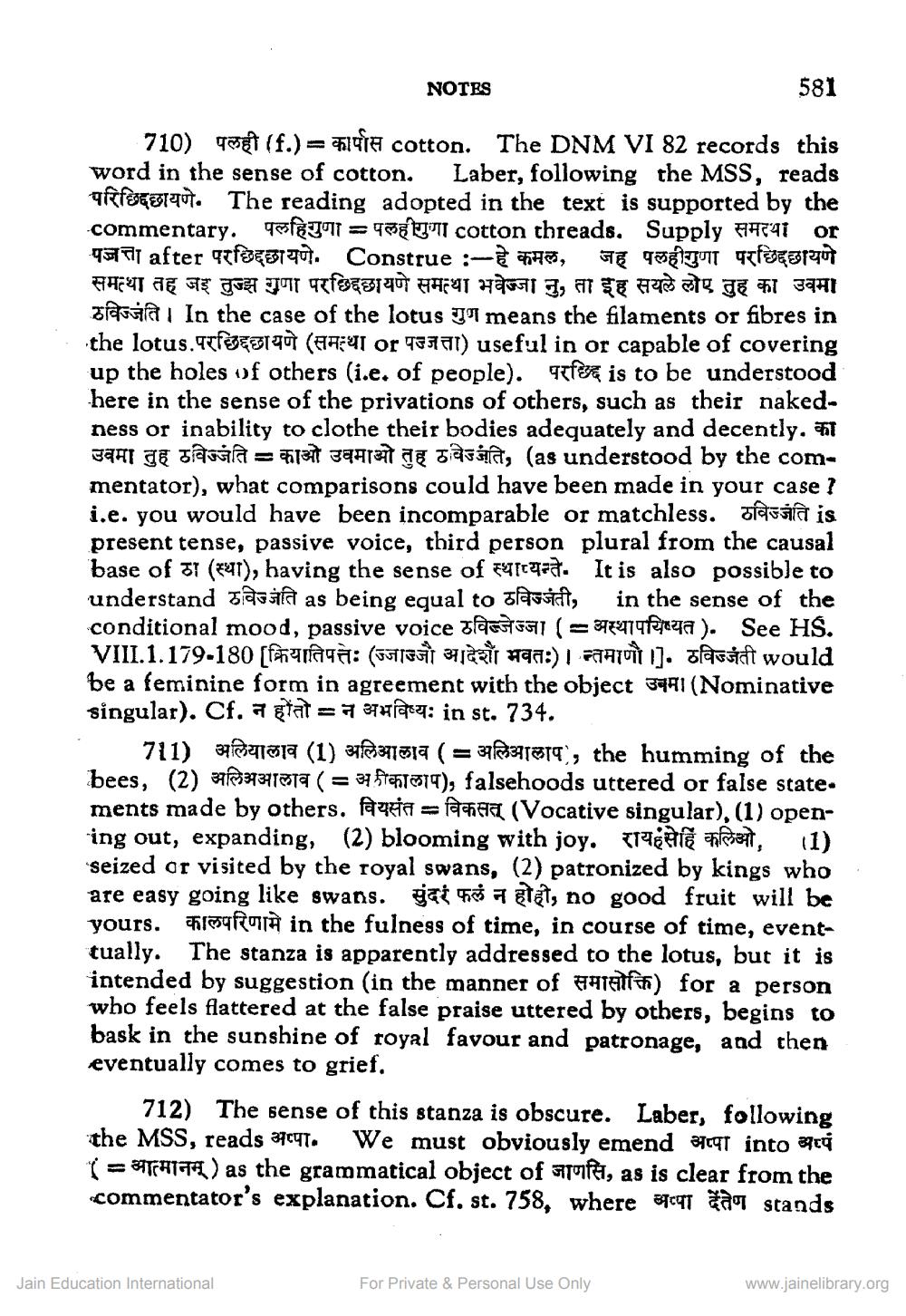________________
581
or
710) पलही (f.) • कार्पास cotton. The DNM VI 82 records this word in the sense of cotton. Laber, following the MSS, reads परिछिद्दछायणे. The reading adopted in the text is supported by the commentary. पलहिगुणा = पलहीगुणा cotton threads. Supply समस्या पत्ता after पर छिद्द्छायणे. Construe :- हे कमल, जह पलहीगुणा पर छिद्दछायणे समत्था तह जइ तुज्झ गुणा परछिदछायणे समत्था भवेज्जा नु, ता इह सयले लोए तुह का उवमा In the case of the lotus means the filaments or fibres in the lotus. परछिद्दछायणे ( समस्या or पज्जत्ता) useful in or capable of covering up the holes of others (i.e. of people). f is to be understood here in the sense of the privations of others, such as their nakedness or inability to clothe their bodies adequately and decently. उवमा तुहठविज्जति = काओ उवमाओ तुह ठविज्जति, (as understood by the commentator), what comparisons could have been made in your case? i.e. you would have been incomparable or matchless. is present tense, passive voice, third person base of 1(1), having the sense of It is also possible to understand ठविज्जति as being equal to ठविज्जंती, in the sense of the conditional mood, passive voice of (=). See HS. VIII.1.179-180 [क्रियातिपत्तेः (ज्जाज्जौ आदेशौ भवतः । न्तमाणौ । ]. ठविज्जंती would be a feminine form in agreement with the object 31 (Nominative singular). Cf. न होंतो = न अभविष्यः in st. 734.
plural from the causal
.
NOTES
711) अलियालाव (1) अलिआलाव ( = अलिआलाप, the humming of the bees, (2) अलिअआलाव ( = अलीकालाप), falsehoods uttered or false state • ments made by others. fafa (Vocative singular), (1) opening out, expanding, (2) blooming with joy. <1¬àí den, (1) seized or visited by the royal swans, (2) patronized by kings who are easy going like swans. gai nó a è̟é̟, no good fruit will be yours. in the fulness of time, in course of time, eventtually. The stanza is apparently addressed to the lotus, but it is intended by suggestion (in the manner of 1) for a person who feels flattered at the false praise uttered by others, begins to bask in the sunshine of royal favour and patronage, and then eventually comes to grief.
712) The sense of this stanza is obscure. Laber, following the MSS, reads. We must obviously emend into q ( = आत्मानम् ) as the grammatical object of जाणसि, as is clear from the commentator's explanation. Cf. st. 758, where
stands
Jain Education International
For Private & Personal Use Only
www.jainelibrary.org




